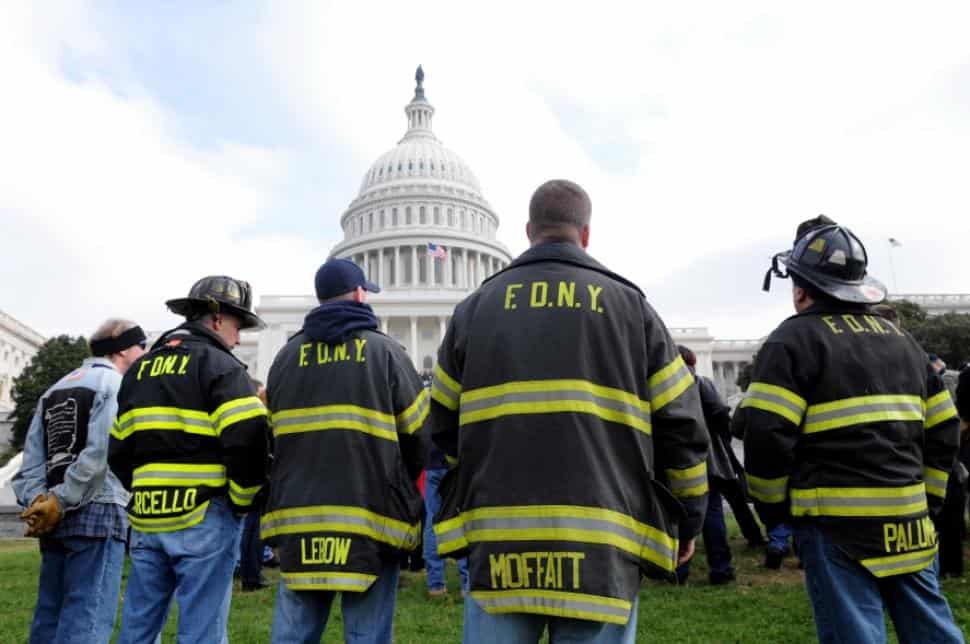
A group of lawmakers, first responders, and community and labor leaders gathered at Ground Zero on September 8 to begin an effort to reauthorize the James Zadroga 9/11 Health and Compensation Act for another 25 years. The Zadroga Act was passed in December 2010 to provide medical treatment and compensation for 9/11 first responders, recovery […]
 A group of lawmakers, first responders, and community and labor leaders gathered at Ground Zero on September 8 to begin an effort to reauthorize the James Zadroga 9/11 Health and Compensation Act for another 25 years.
A group of lawmakers, first responders, and community and labor leaders gathered at Ground Zero on September 8 to begin an effort to reauthorize the James Zadroga 9/11 Health and Compensation Act for another 25 years.
The Zadroga Act was passed in December 2010 to provide medical treatment and compensation for 9/11 first responders, recovery workers and volunteers, and community survivors. Later this month, U.S. Senators Kirsten Gillibrand and Chuck Schumer will introduce the Zadroga Act reauthorization to extend the programs through 2041.
Unless the Zadroga Act is reauthorized, the World Trade Center Health Program and the September 11th Victim Compensation Fund will expire in October 2015 and October 2016 respectively, 9/11 Health Watch reports. The WTC Health Program is crucial for many who have developed cancers and chronic illnesses in the years since the attacks. The Centers for Disease Control and Prevention says that more than 2,900 people have been diagnosed with 9/11-related cancers and the number is growing. Under the current terms of the Zadroga Act, compensation claims must be filed within two years of diagnosis, with a final deadline coming in October 2016. Studies show that WTC rescue and recovery workers have developed prostate and thyroid cancer, leukemia, and multiple myeloma at a significantly higher rate than the general population, 9/11 Health Watch reports. Other 9/11 responders and survivors suffer chronic illnesses including asthma, obstructive pulmonary disease, and gastroesophageal reflux disease. Many are now unable to work.
At the September 8 gathering, Senator Schumer said extending medical treatment and compensation programs for “brave first responders” must be a “top priority” for Congress, according to 9/11 Health Watch. New York mayor Bill de Blasio noted the “moral obligation to make sure that these heroes and their families get the medical treatment and compensation they deserve.”


